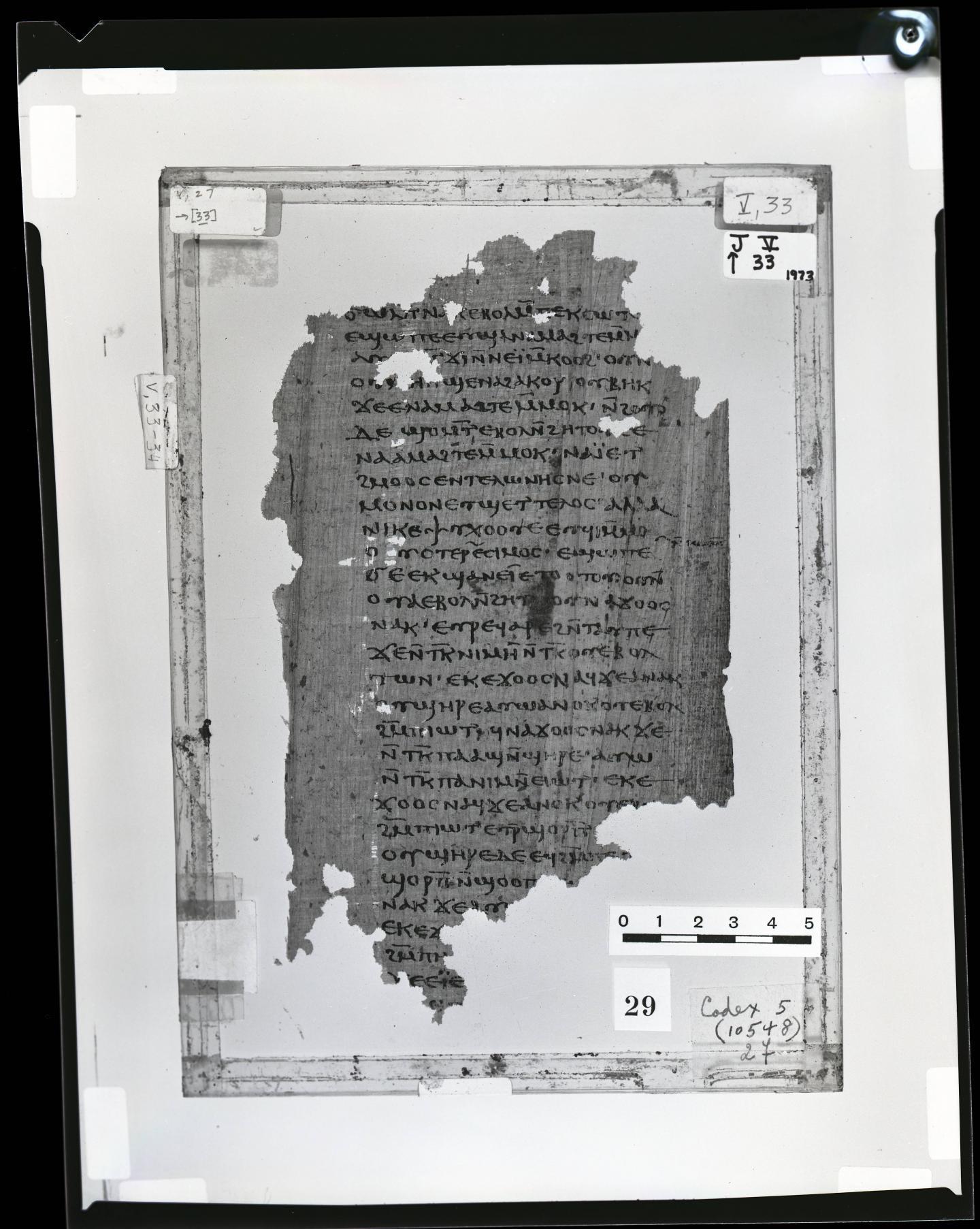Heretical text of secret teachings of Jesus lost for 1,500 years discovered at Oxford University
Manuscript written more than 1,500 years ago had been thought to only survive in translations
Your support helps us to tell the story
From reproductive rights to climate change to Big Tech, The Independent is on the ground when the story is developing. Whether it's investigating the financials of Elon Musk's pro-Trump PAC or producing our latest documentary, 'The A Word', which shines a light on the American women fighting for reproductive rights, we know how important it is to parse out the facts from the messaging.
At such a critical moment in US history, we need reporters on the ground. Your donation allows us to keep sending journalists to speak to both sides of the story.
The Independent is trusted by Americans across the entire political spectrum. And unlike many other quality news outlets, we choose not to lock Americans out of our reporting and analysis with paywalls. We believe quality journalism should be available to everyone, paid for by those who can afford it.
Your support makes all the difference.An original copy of a piece of heretical Christian writing describing Jesus's secret teachings to his brother James has been discovered in archives at Oxford University.
The script, more than 1,500 years old, is one of only a small number of early Christian texts to have been found in Greek, their original language of composition.
Biblical scholars from the University of Texas at Austin (UTA) discovered several fragments of the manuscript, known as the First Apocalypse of James, lost among the Egypt Exploration Society's archives at Oxford.
The text forms part of the the Nag Hammadi library – a collection of 13 Coptic Gnostic books discovered in a terracotta pot in Upper Egypt in 1945 – and was previously thought only to have survived in Coptic translations.
"To say that we were excited once we realised what we'd found is an understatement," said Geoffrey Smith, an assistant professor of religious studies at UTA. "We never suspected that Greek fragments of the First Apocalypse of James survived from antiquity. But there they were, right in front of us."
The ancient manuscript, written in the fifth or sixth century, describes secret revelations made by Jesus to his brother James about the heavenly realm and future events including James's death.
"The text supplements the biblical account of Jesus's life and ministry by allowing us access to conversations that purportedly took place between Jesus and his brother, James - secret teachings that allowed James to be a good teacher after Jesus's death," Mr Smith said.

The apocryphal writings were considered heretical because they fell outside the canonical boundaries set by Athanasius, Bishop of Alexandria. In a 367AD letter that defined the 27-book New Testament, the Bishop wrote: "No one may add to them, and nothing may be taken away from them."
With its neat, uniform handwriting and words separated into syllables, the Greek manuscript was probably a teacher's model used to help students learn to read and write, according to scholars.
"The scribe has divided most of the text into syllables by using mid-dots," said Brent Landau, a lecturer at UTA's Department of Religious Studies. "Such divisions are very uncommon in ancient manuscripts, but they do show up frequently in manuscripts that were used in educational contexts."
The teacher who produced the manuscript must have "had a particular affinity for the text," he added, as it appears to be a complete copy of the forbidden text rather than a brief excerpt, as was common in school exercises.
The scholars announced the discovery at the Society of Biblical Literature Annual Meeting in Boston in November and are working to publish their preliminary findings in the Graeco-Roman Memoirs series.
Subscribe to Independent Premium to bookmark this article
Want to bookmark your favourite articles and stories to read or reference later? Start your Independent Premium subscription today.

Join our commenting forum
Join thought-provoking conversations, follow other Independent readers and see their replies
Comments